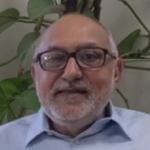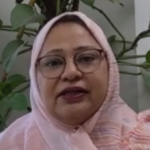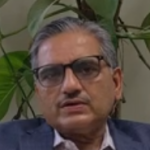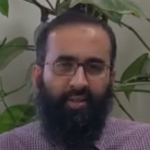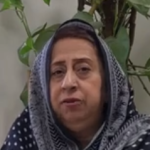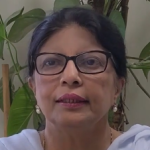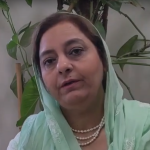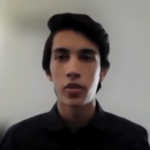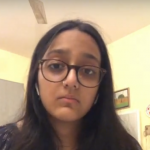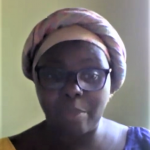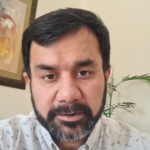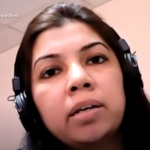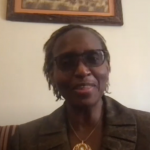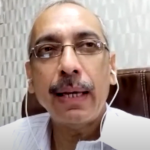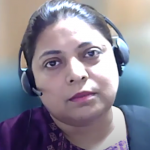The term ‘Islamic Feminism’ gained currency in the 1990s as a label for a brand of feminist scholarship and activism that was associated with Islam and Muslims. There has since been much discussion and debate and a growing literature on ‘Islamic feminism,’ to which I have contributed. The difficulty with the term ‘Islamic feminism’ is that both of its components, ‘Islam’ and ‘feminism,’ are contested concepts that mean different things to different people in different contexts. Each is the subject of multiple discourses and widely ranging perspectives that can be addressed at different levels. We need to start by asking: Whose Islam? Whose Feminism? – Questions that continue to remain unaddressed in most discussions on Islamic feminism.
I define ‘feminism’ in the widest sense – a concern with women’s issues, an awareness that women suffer discrimination at work, in the home and in society, and actions aimed at improving their lives. There is also an epistemological side to feminism which sheds light on how we know what we know about women, family and religious tradition, and law and practices that institutionalize patriarchy by taking their legitimacy from religion.
I distinguish ‘Islamic’ from ‘Islamist’ and ‘Islamism’. ‘Islamism’ I define as political commitment to public action to implement what Islamists regard as an Islamic agenda, commonly summarized in slogans such as ‘Islam is the solution’ or ‘return to Shari’a’. ‘Islamic’, on the other hand, when attached to an -ism such as feminism, means merely finding inspiration and legitimacy in Islamic history and textual sources.
When thinking and talking about Islam we also need to make another distinction, namely between faith (and its values and principles) and organized religion (institutions, laws and practices).There is a pervasive polemic-rhetorical trick of either glorifying a faith without acknowledging the horrors and abuses that are committed in its name, or condemning it by equating it with those abuses. Words such as din, as much as ‘religion,’ are ambiguous and can be hopelessly imprecise for the purposes of analysis. Similarly, the meaning of Shari’a is widely contested. For some Muslims, Shari’a has become synonymous with patriarchal laws and cruel punishments. For the Muslim masses, Shari’a is the essence of justice, while for Islamists Shari’a is a powerful political ideology. In Muslim tradition, Shari’a is a theological and ethical concept more than a legal one, associated with the sacred, denoting the totality of God’s will as revealed to the Prophet Muhammad. In my work, I have sought to keep the distinction between Shari’a (lit. the path) and fiqh (lit. understanding). While the first embodies the revealed law the second is the science of Muslim jurisprudence, human attempts to extract legal rules from the sacred sources of Islam and make laws that are mundane, temporal and local. Anyone who claims that a specific law or rule ‘is’ Shari’a is claiming divine authority for something that is in fact a human interpretation.
Two events in 1979 marked a turning point in the politics of relations between Islam and feminism. The first was the UN General Assembly’s adoption of CEDAW (the Convention on the Elimination of all forms of Discrimination against Women), which gave a clear international legal mandate to women’s rights as human rights. The second event was the Iranian Revolution, which brought an end to a US-backed monarchy and introduced an Islamic Republic that sought to reintroduce laws that conformed with traditionalist Islamic jurisprudence. Subsequent decades saw the concomitant expansion, globally and locally, of these two equally powerful but opposed frames of reference.
The human rights framework gave women’s rights activists, including those in Muslim countries, language and tools to resist and challenge patriarchy, and the idea that violence against women, rooted in traditions and religious practices, is a violation of their human rights. Meanwhile, Islamist forces started to invoke Islam and Shari’a as legitimizing devices to reverse the process of reform and secularization of legal systems. Their rallying cry of ‘Return to Shari’a’ led to regressive gender policies with devastating consequences for women, including the revival of tribal models of social relations. These developments widened and intensified the conflict between ‘Islamists’ and ‘feminists,’ and reignited old polemics between ‘Islam’ and the ‘West.’
However, the conflict between these bitterly opposed positions found a kind of resolution in the emergence of a new gender discourse that came to be called ‘Islamic feminism.’ The Islamists’ agenda of ‘return to the Shari’a’, and their defence of patriarchal rulings as ‘God’s Law’, had some unintended consequences. Not only did they bring classical jurisprudential texts out of the closet but they enabled a growing number of women to question whether there is an inherent link between Islamic ideals and patriarchy. Relying on the ethical and egalitarian spirit of the Qu’ran, these women saw no contradiction between their faith and their aspiration for gender equality. Paradoxically, political Islam gave them the incentive to critique the gender biases of Muslim family laws in ways that were previously impossible. Since the late 1980s, we have witnessed the emergence of a new brand scholarship from within the Islamic tradition, informed by a feminist analysis that is mindful of gender as category of thought.
Meanwhile, in the aftermath of the 11 September 2001 attacks in the USA, the politics of the ‘war on terror’, the illegal invasions of Afghanistan and Iraq, both partially justified as promoting ‘democracy’ and ‘women’s rights’ the subsequent revelations of abuses in Guantanamo, Abu Ghraib and Bagram, and the double standards employed in promoting UN sanctions, have all discredited international human rights ideals and feminism in the eyes of many. The gap between these ideals and the practices of some of their proponents have increasingly invited accusations of hypocrisy. As the first decade of the new century came to a close, both ‘feminism,’ now commonly identified with international human rights law and its politics, and ‘Islam,’ now often reduced to Islamists and their slogan of ‘return to Shari’a’, lost legitimacy and moral authority in many quarters.
It is against the backdrop of these developments that we should place the feminist voices and scholarship in Islam. Realizing the close link between religious and political identity in Muslim contexts, more and more women came to realize that there can be no justice and no sustainable change until patriarchy is separated from the Shari’a. To abolish patriarchal laws and customs among Muslims it is insufficient, and counterproductive, to attack these on human rights grounds alone. To achieve sustainable change injustices arising from patriarchal laws must be revealed as taking their legitimacy from a particular reading of Islam’s sacred texts, and offer defensible and comprehensible alternatives within a framework that recognizes equality and justice within Islam through interpretations of its sacred texts. Scholarship must join activism to bring together fresh perspectives on Islamic teachings, universal human rights principles, and the lived realities of women and men today, and to argue that equality in the Muslim family is now both necessary and possible, and that denial of this equality in the name of Islam and tradition should be firmly rejected.
This century has given birth to a new gender discourse that is Islamic in its sources of legitimacy yet feminist in its demand. A constructive dialogue between feminism and Islamic legal tradition has begun; but a true dialogue is only possible when the two parties treat each other as equals and with respect; otherwise it will remain a dialogue of the deaf. For those committed to justice for women there is no other option but to bring Islamic and feminist perspectives together.


